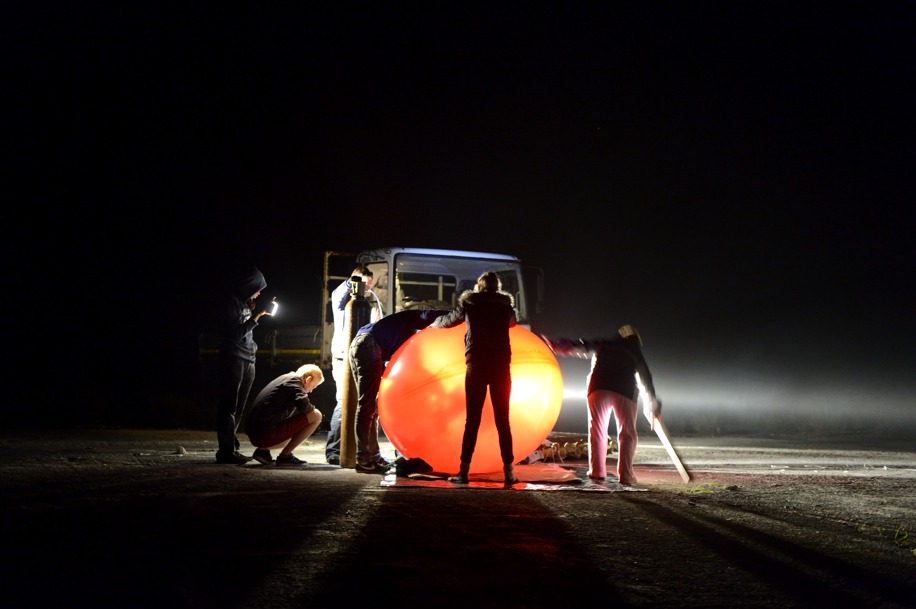
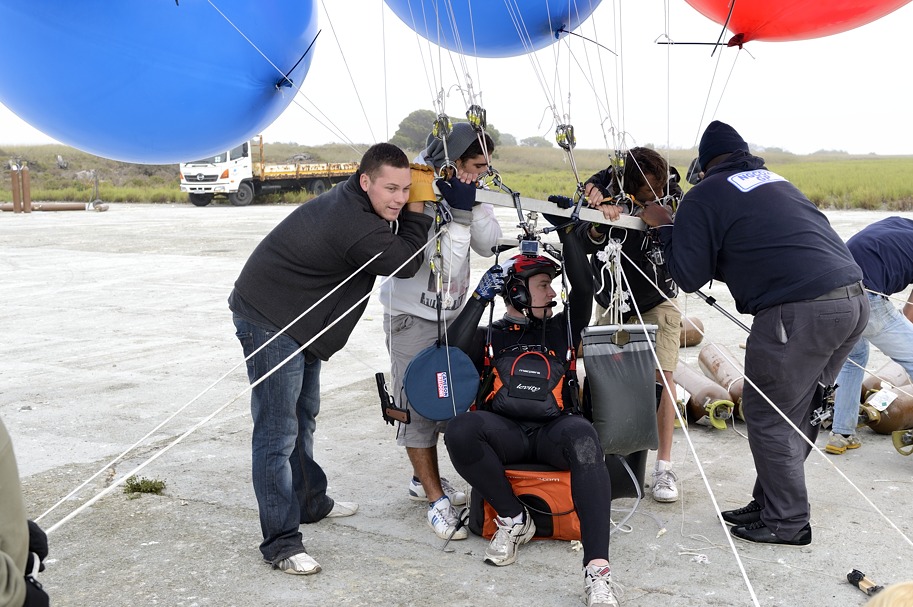
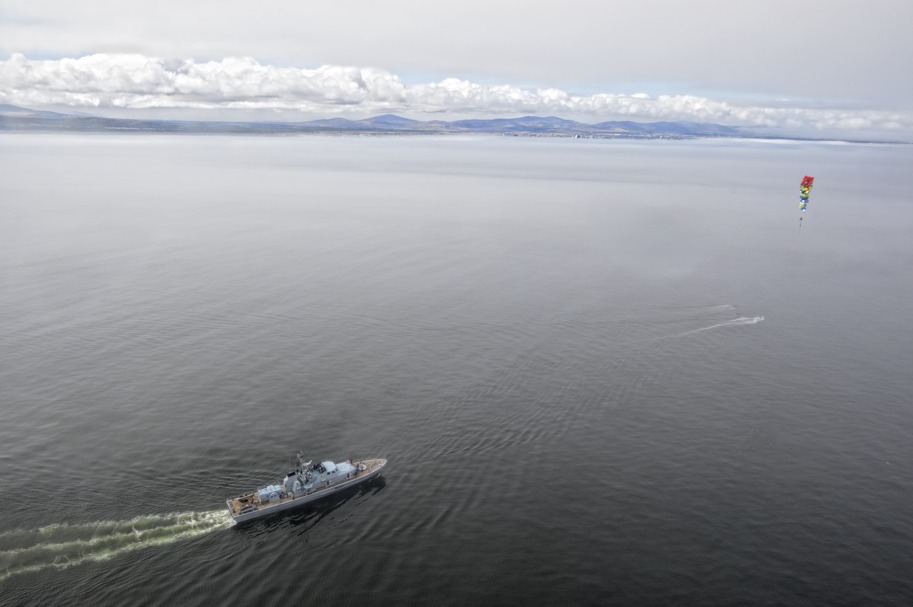
Jaco Wolmarans, a freelance photographer and journalist based in Cape Town, will share his flight story on a helium balloon from Robben Island to the mainland of Cape Town, South Africa – a fundraising event for the Nelson Mandela Children’s Hospital in Johannesburg (click on images for larger view);
Floating from Robben Island to Cape Town suspended underneath 200 helium balloons was a crazy idea, in my opinion. Clearly the world media thought the same. We were swamped by news teams filming every step of South African paramedic Matt Silver-Vallance’s preparation on Robben Island at 4am.
I was still lying in my tent, shooting into the mist from the relative warmth of my sleeping bag. The scene was unworldly – smoke from truck exhausts lighting the way, plus the backlighting from their headlights, made for great atmospheric lighting. I pushed my D4 to the max to get crisp shots, but capturing the frantic movement of volunteers hoping to inflate the big balloons before sunrise was not always possible, I realized.
I was the official airborne photographer for this fundraising effort by Silver-Vallance, an eccentric character who hardly ever wears shoes. He was raising funds for the Nelson Mandela Children’s Hospital in Johannesburg, and managed to do the impossible – to fly from the national heritage site that was Robben Island. My footage and stills were to be supplied for free to media worldwide – my contribution to the charity.
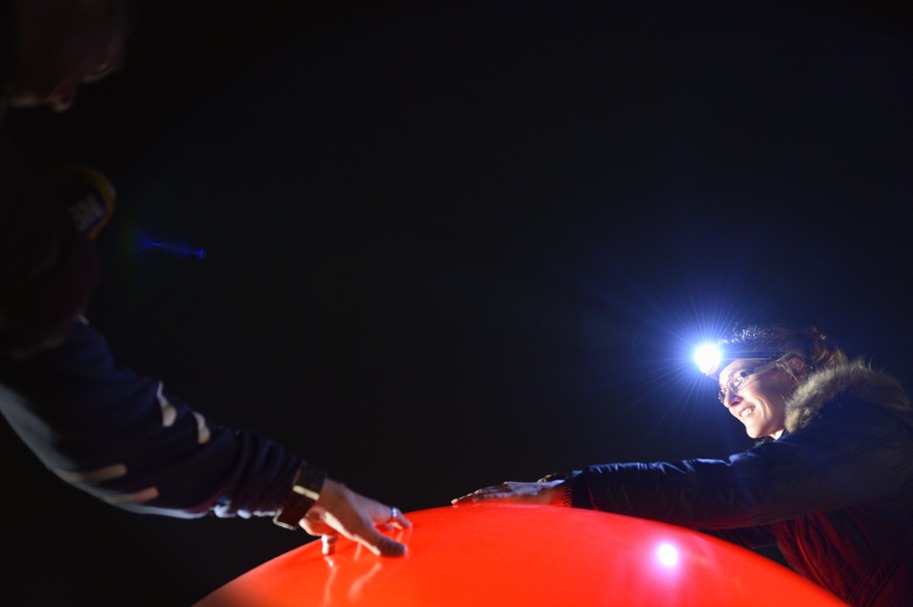
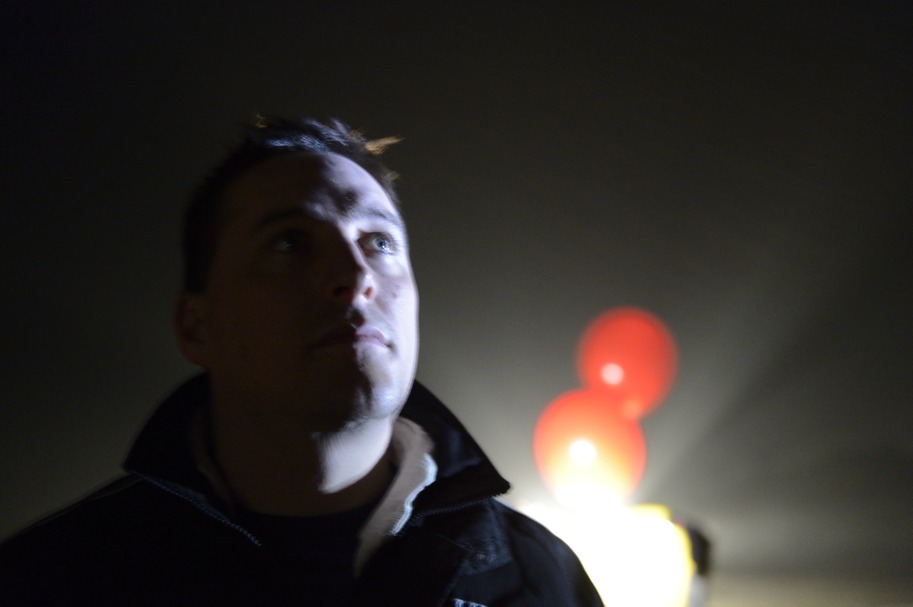
This was impossible to do on many levels – we would be flying in underneath one of the busiest airspaces in South Africa, literally at the mercy of the winds, with very little control over vertical ascent. Matt was going to shoot out balloons with a pop gun or poke them with a sharp stick if he exceeded the allowed 2000ft ceiling while crossing 10km of very cold water. And on the strength of that, he got permission from the air traffic control authorities. And a flotilla of following boats, including a Navy minesweeper, to accompany us. It says a lot of the man’s persuasive powers.
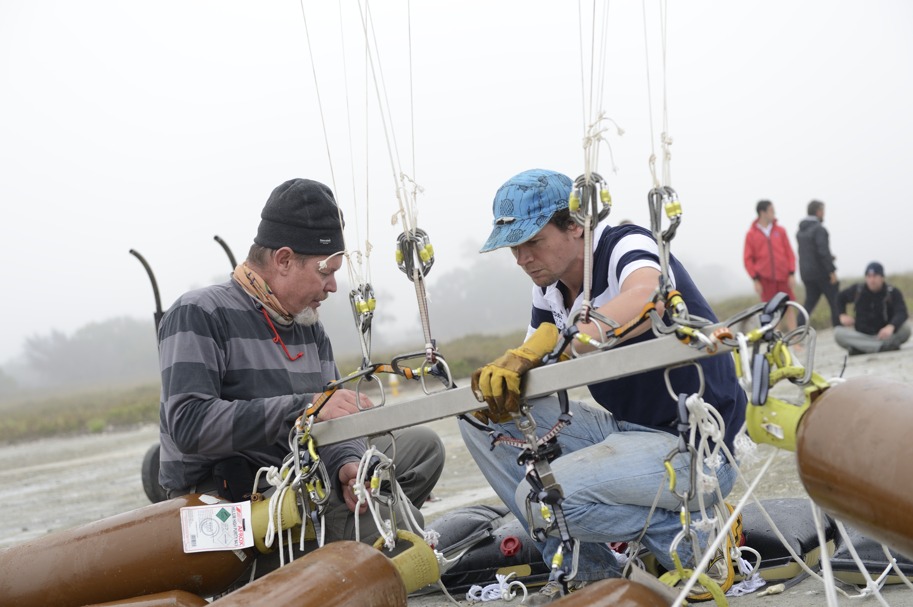
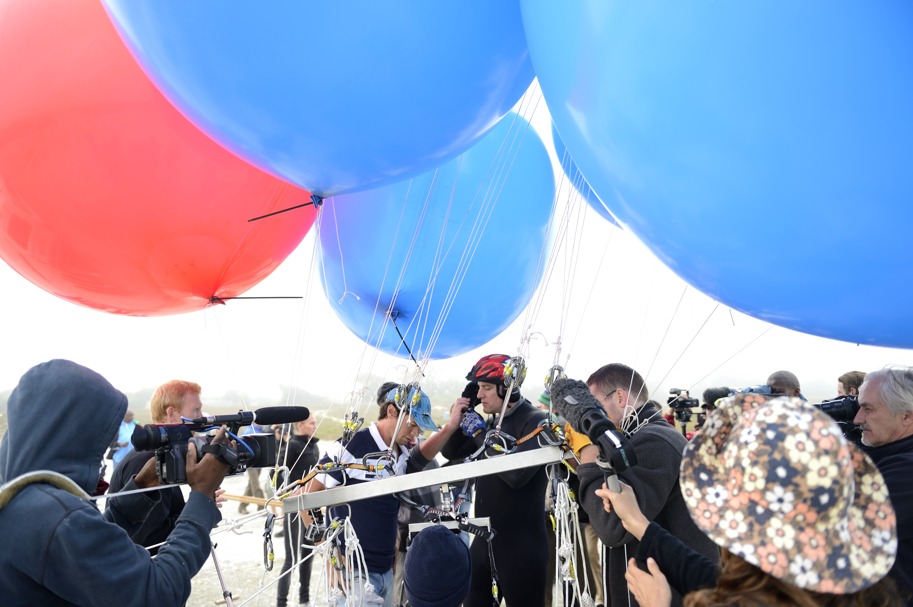
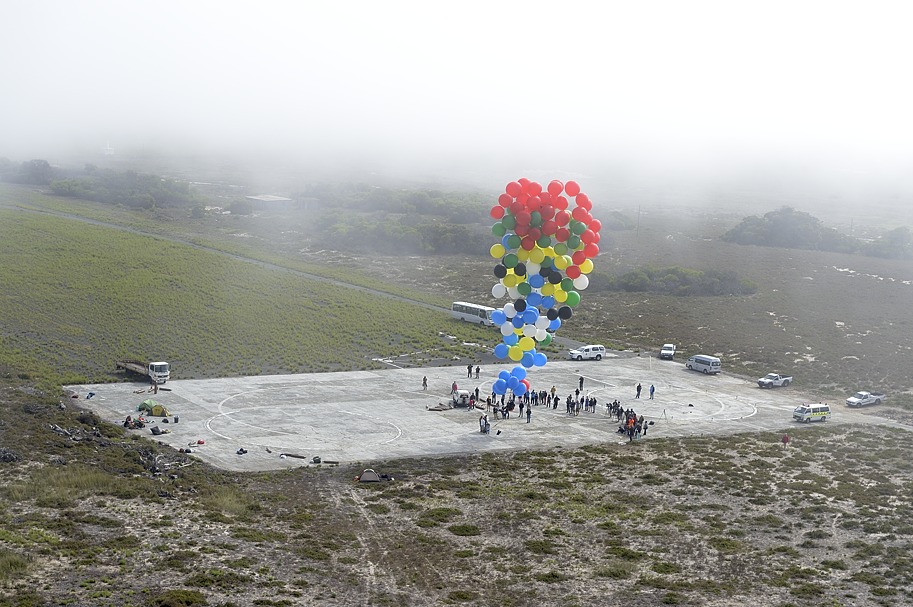
I was to fly alongside on a tandem motorized paraglider, piloted by friend Keith Pickersgill. Being a paraglider pilot myself, I was comfortable flying with Keith. But not with the ceiling imposed on us – if we had an engine out even at our max allowed ceiling, there would simply not be enough height to glide to dry land. We were supposed to land on one of the boats, but with no direct radio comms with our support rubber duck, I was not optimistic that this would end well.
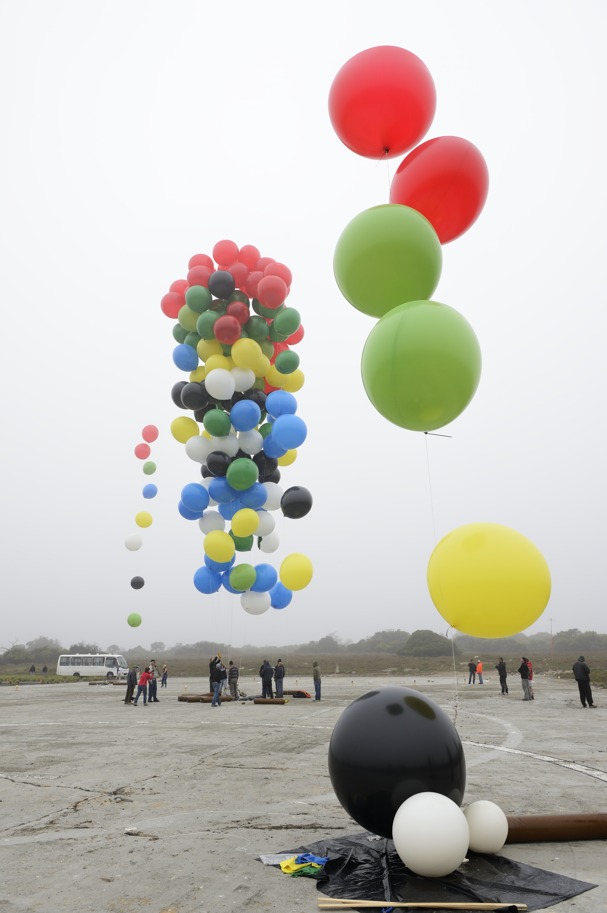
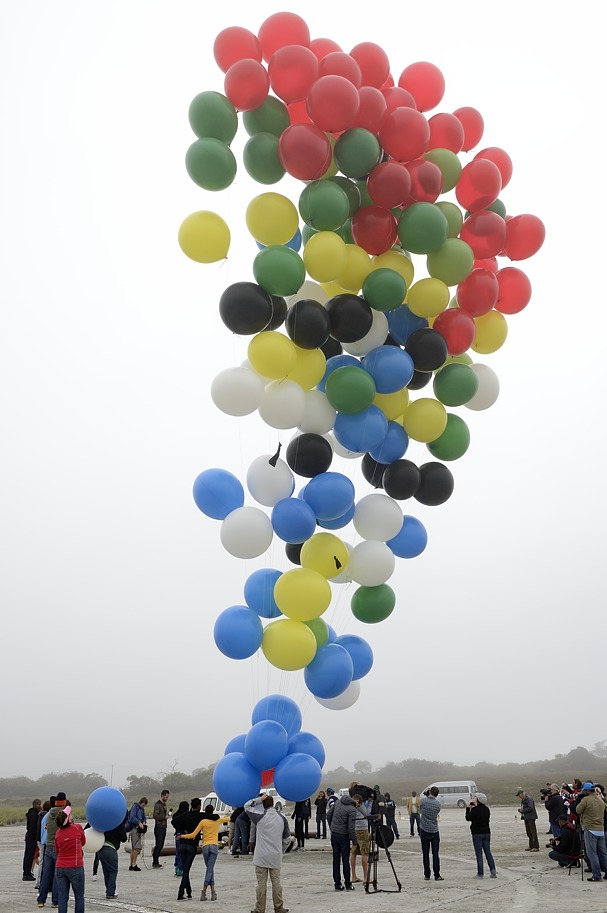
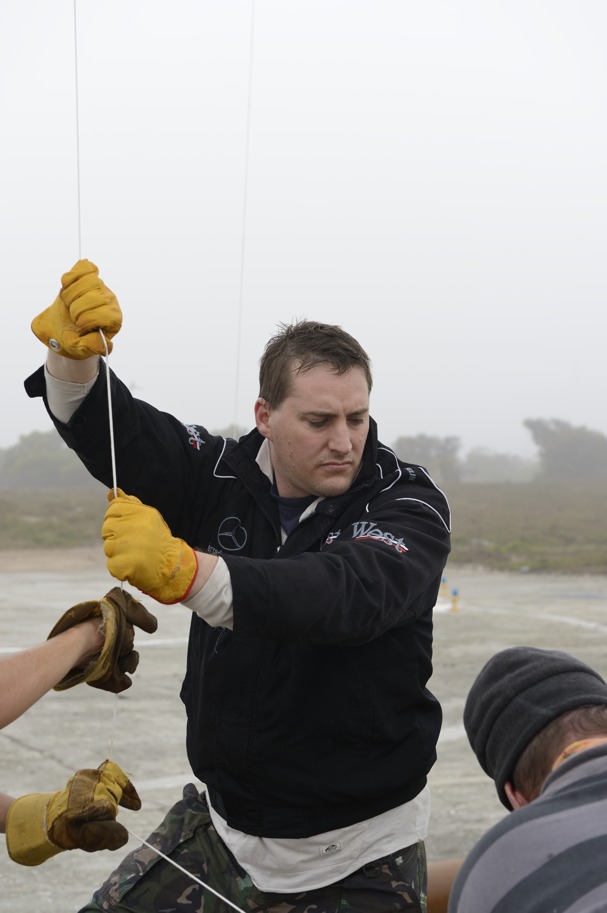
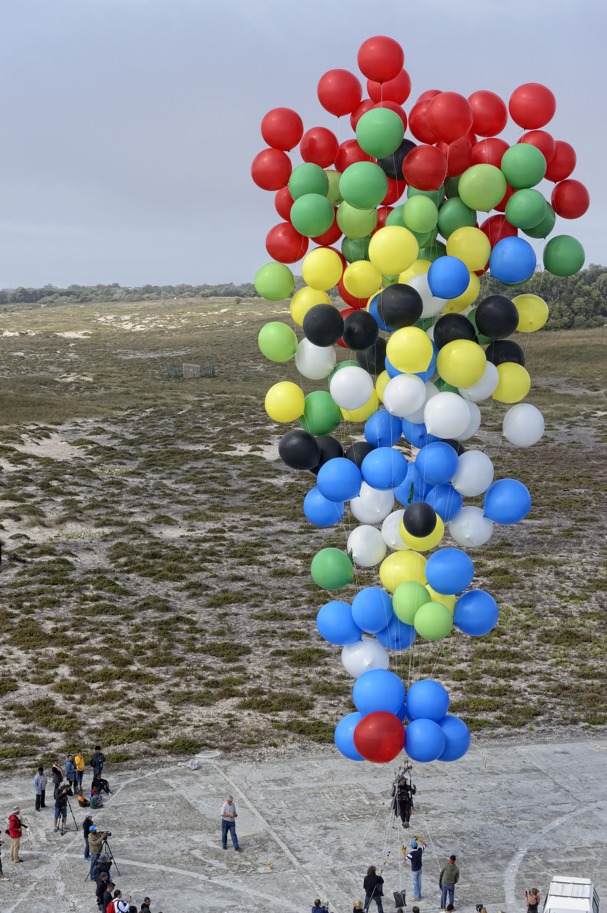
The mist persisted until well into the morning, and as soon as we saw blue sky, Keith and I launched to check airspace clarity and report back to Matt. We were scarcely airborne when we spotted Matt release and shoot up like a cork. His neutral buoyancy was completely out, and he was climbing at over 4m/s. We chased hard, me shooting as much stills and video as we could as Matt fought to control his ascent. The long stick came out, and a number of popped balloons later, suddenly he was plummeting towards the Atlantic again.
Keith called a warning of an imminent ditching to the follow boats, who rushed to Matt’s side. As his dangling water ballast bags hit sea level, he returned to neutral buoyancy and drifted at sea level for the rest of the way.
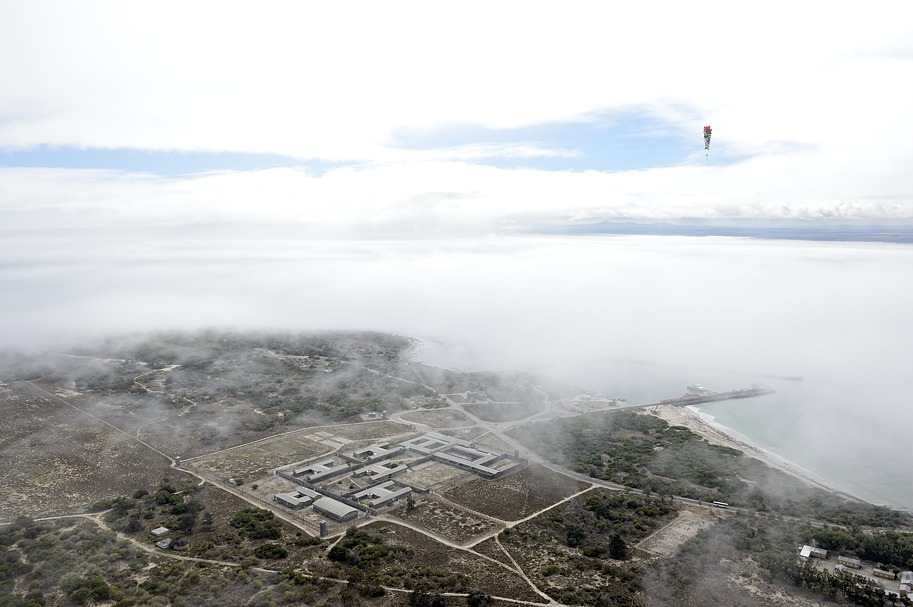
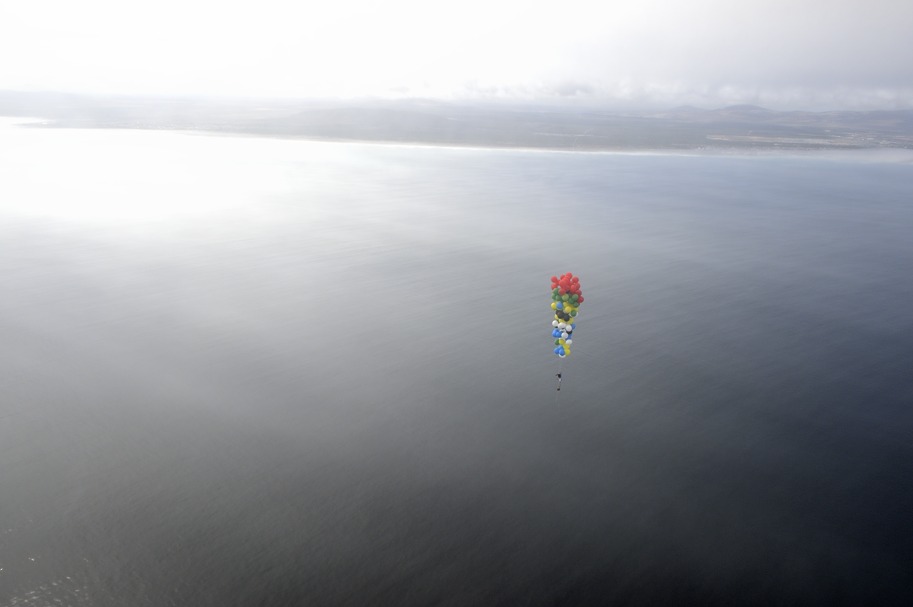
Meanwhile above, the clouds and mist were closing up again, forcing us lower and lower, our safety margin decreasing by the minute. My Nikon was completely soaked but kept shooting without a hitch. Our paramotor wing got drenched from the cloud flying, all the time forcing us to fly closer to our stall point. I noted this, as well as Keith’s concern about his fuel level. We were burning up juice fast to keep the wing flying. On top of which, our life jackets all but trapped us in our harnesses: it would be all but impossible to release the buckles in time if we should hit the drink.
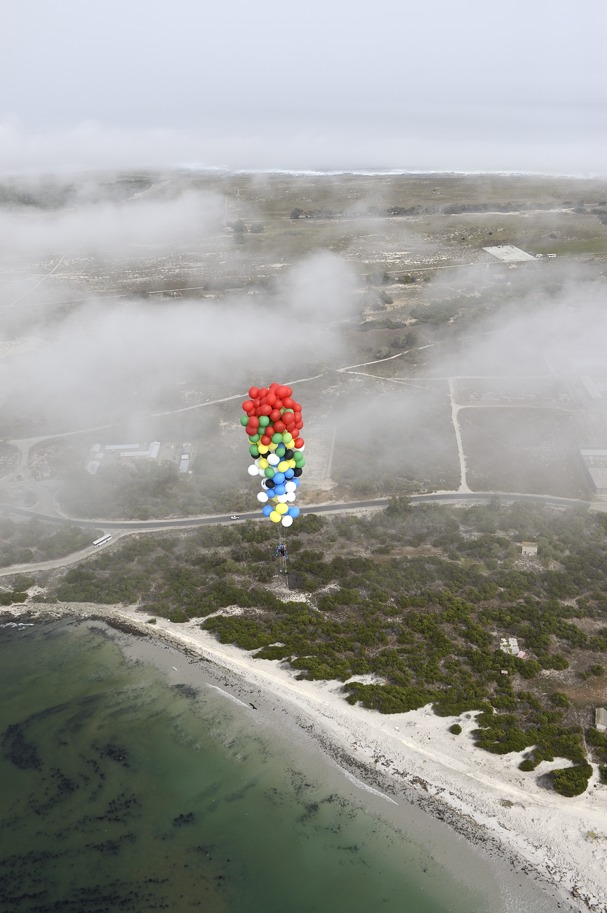
Then the cloud closed in almost to sea level. We were 4km from the shore still, and after a quick deliberation, we agreed it would be safer to set a GPS course for dry land and await Matt’s arrival from a safer place. But first, we had to warn Matt that he was drifting directly to a huge oil tanker lying at anchor, invisible to them due to the mist. His follow boats tried to pull him sideways, but to no avail, we found out later.
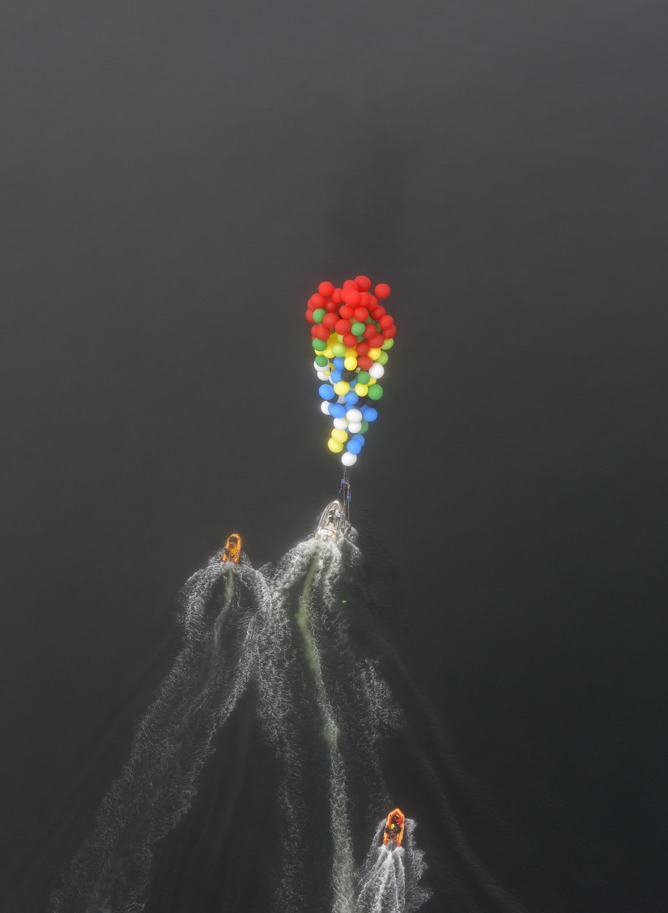
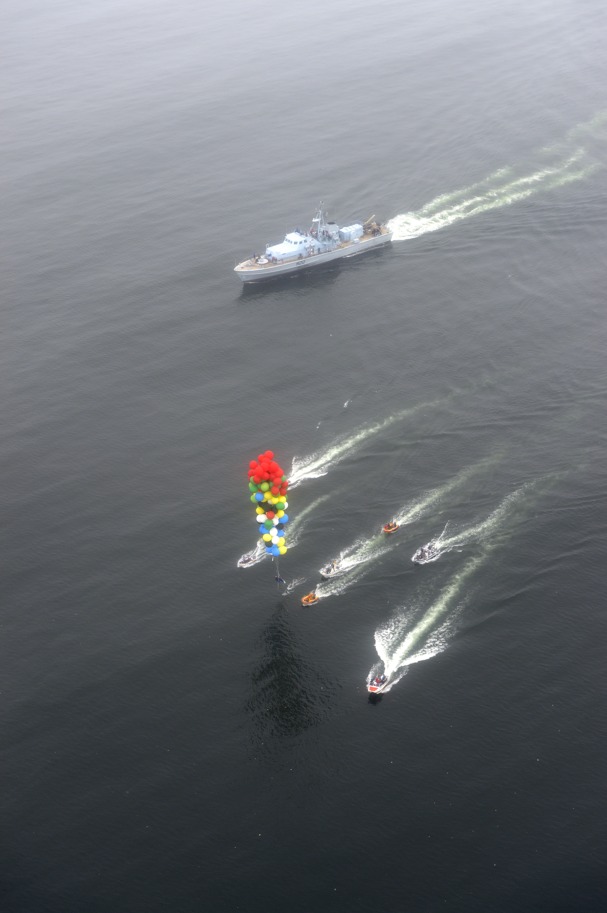
Flying blind for a few minutes, the land mass finally came into view, to our relief. We stayed on the coast, waiting for the flotilla, which had simply disappeared. When we could no longer chance flying, we landed – there was literally a cupful of fuel left. We also found that Matt had to cut away the balloons when he could no longer avoid hitting the tanker, and was being brought ashore by boat.
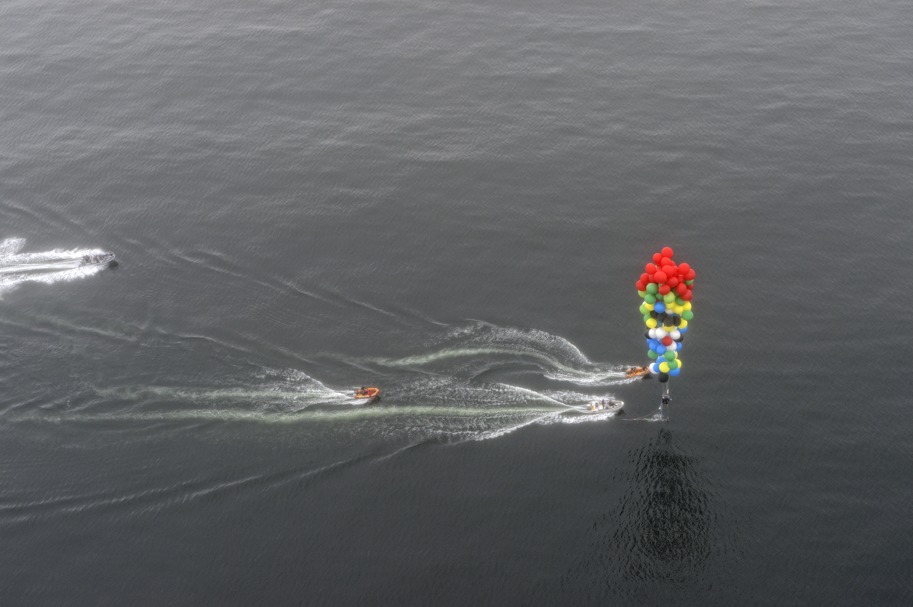
Despite the very real danger to us all, the event was a huge success, and attracted immense worldwide coverage. Back at the base camp, I downloaded all the footage and distributed it to the media. It was all over the local news that night, and screen by the BBC, ABC and various magazines across the world.
A disturbing post-script to this event: Matt contacted us a few weeks back. He has another scheme in mind, even more crazy. Would we like to take part again?
My blog for the full story: http://behindthescenesphoto.wordpress.com/2013/04/17/airborne-with-the-balloon-bloke/
If you have an interesting idea for a guest post, you can contact me here.







